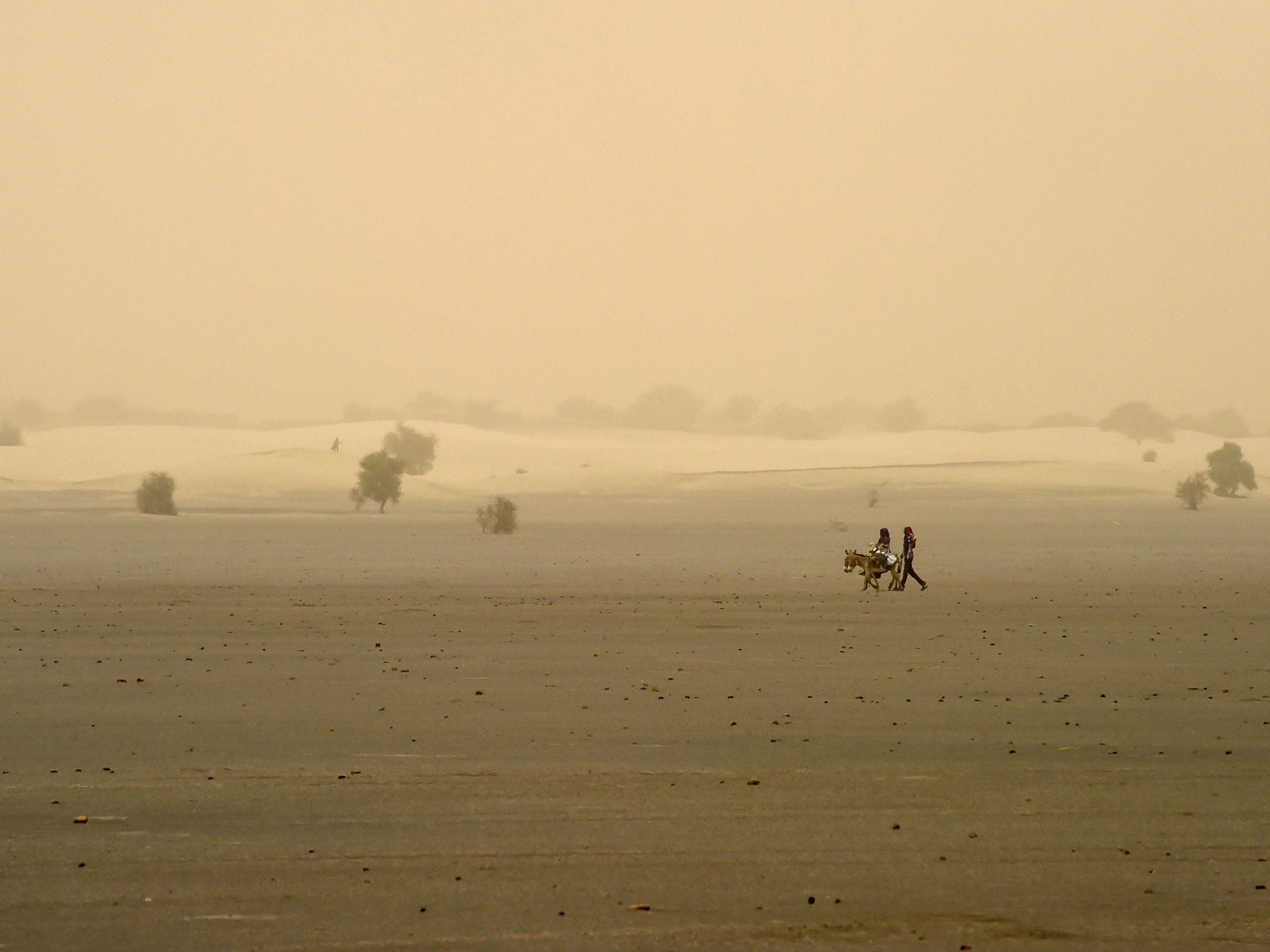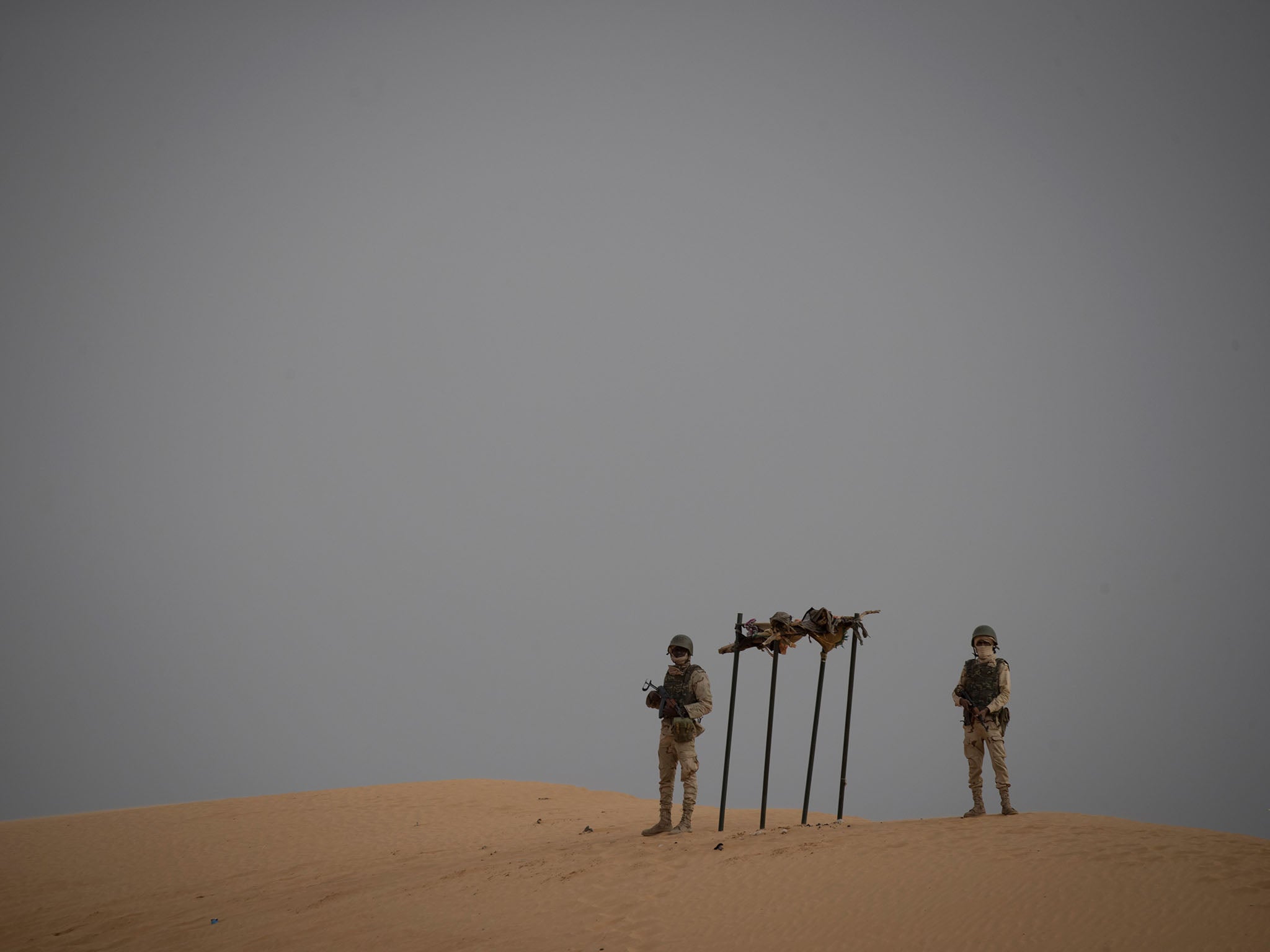UN warns of growing humanitarian crisis in Africa’s Sahel as extremist attacks rise
More than two million people in dire need of aid in region, UN says

Your support helps us to tell the story
From reproductive rights to climate change to Big Tech, The Independent is on the ground when the story is developing. Whether it's investigating the financials of Elon Musk's pro-Trump PAC or producing our latest documentary, 'The A Word', which shines a light on the American women fighting for reproductive rights, we know how important it is to parse out the facts from the messaging.
At such a critical moment in US history, we need reporters on the ground. Your donation allows us to keep sending journalists to speak to both sides of the story.
The Independent is trusted by Americans across the entire political spectrum. And unlike many other quality news outlets, we choose not to lock Americans out of our reporting and analysis with paywalls. We believe quality journalism should be available to everyone, paid for by those who can afford it.
Your support makes all the difference.Ousmane Sawadogo, his wives and children recently fled their village in northern Burkina Faso because of growing extremist violence.
After walking 124 miles to the regional city of Kaya, they now forage for wild leaves to survive.
“What we need now is food. Everything else can wait,” Ms Sawadogo told the United Nations World Food Program. “Once we get food then we will worry about clothes.”
The UN on Tuesday said a humanitarian crisis is growing in West Africa's arid Sahel region where insecurity linked to growing extremist attacks has forced more than 860,000 people in Burkina Faso, Mali and Niger to flee their homes.
Nearly half a million people have been displaced this year in Burkina Faso alone as the landlocked country becomes the new hunting ground for extremists linked to the Islamic State group and al-Qaeda.
Burkina Faso saw more attacks in the first half of this year than it did in all of 2018.
“A dramatic human crisis is unfolding in Burkina Faso that has disrupted the lives of millions,” the WFP's executive director, David Beasley, said in a statement. “A third of the country is now a conflict zone.”
WFP teams are seeing malnutrition levels “pushed well past emergency thresholds”, he said. “This means young children and new mothers are on the brink. If the world is serious about saving lives, the time to act is now.”
Farmers have been forced to abandon their fields. As communities take in displaced people, already stretched resources are further depleted.
“You are looking at a situation that is developing into something really severe, I would even say dire,” WFP regional spokesman George Fominyen told The Associated Press. “We don't know how long this situation will go on. That's why we are raising this alarm.”
WFP is assisting more than 2.6 million people in Burkina Faso, Mali and Niger.
It said $150m (£116m) is urgently needed in a region where some 20 million people live in conflict-affected areas.

“The main trigger here is conflict,” Fominyen said. “Then you are talking about it happening in a place that in itself already has a lot of problems” such as drought, poverty, weak government, unemployment and lack of social services.
Extremists exploit those troubles while wary communities turn on each other amid allegations of supporting the jihadists. The violence limits humanitarian access to people in need and the poverty contributes to the violence, Fominyen said.
The response to the crisis cannot just be about security, he warned. It also must address the root causes and offer viable alternatives to joining extremist groups.
Associated Press
Join our commenting forum
Join thought-provoking conversations, follow other Independent readers and see their replies
Comments